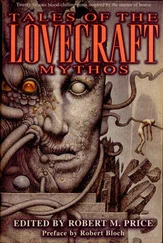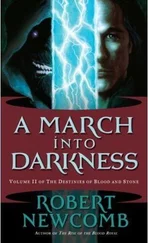Robert Pirsig - Lila. An Inquiry Into Morals
Здесь есть возможность читать онлайн «Robert Pirsig - Lila. An Inquiry Into Morals» весь текст электронной книги совершенно бесплатно (целиком полную версию без сокращений). В некоторых случаях можно слушать аудио, скачать через торрент в формате fb2 и присутствует краткое содержание. Жанр: Современная проза, на английском языке. Описание произведения, (предисловие) а так же отзывы посетителей доступны на портале библиотеки ЛибКат.
- Название:Lila. An Inquiry Into Morals
- Автор:
- Жанр:
- Год:неизвестен
- ISBN:нет данных
- Рейтинг книги:3 / 5. Голосов: 1
-
Избранное:Добавить в избранное
- Отзывы:
-
Ваша оценка:
- 60
- 1
- 2
- 3
- 4
- 5
Lila. An Inquiry Into Morals: краткое содержание, описание и аннотация
Предлагаем к чтению аннотацию, описание, краткое содержание или предисловие (зависит от того, что написал сам автор книги «Lila. An Inquiry Into Morals»). Если вы не нашли необходимую информацию о книге — напишите в комментариях, мы постараемся отыскать её.
Lila. An Inquiry Into Morals — читать онлайн бесплатно полную книгу (весь текст) целиком
Ниже представлен текст книги, разбитый по страницам. Система сохранения места последней прочитанной страницы, позволяет с удобством читать онлайн бесплатно книгу «Lila. An Inquiry Into Morals», без необходимости каждый раз заново искать на чём Вы остановились. Поставьте закладку, и сможете в любой момент перейти на страницу, на которой закончили чтение.
Интервал:
Закладка:
All these different patterns of people’s lives passing through each other without any contact at all… Smells… all different kinds of food odors… Cigars… Above the window with the pennant, a billboard for Marx Furs. Something angering… The model… High-fashion, high-class. I am so desirable, I am so unapproachable. But if you have the price (you cheap bastard), I am for sale. That price… Was it all for sale if you had that price?… Do women really act like that here?… Some, he supposed… it must sell furs. And jewelry and cosmetics… Ahh, it was just an advertising cliché. Those guys were for sale… More candid-camera eyes, some cynical. If he wasn’t up to something, why was he here?… It wore on you, that guilty-until-proven-innocent attitude. He didn’t want to prove anything to anyone. He was done with that.
That was it. He didn’t want to prove anything. Not to Rigel, not to Lila, not to her friends … God, what a shock that was. If those were her friends he sure didn’t want to meet her enemies.
He wondered what it was about himself that she couldn’t see when he was getting angry. Just now at the café she’d gone on for fifteen minutes about what great people they were and she never saw what was coming. She missed the whole point of everything. She’s after Quality, like everybody else, but she defines it entirely in biological terms. She doesn’t see intellectual quality at all. It’s outside her range. She doesn’t even see social quality.
That whole thing with her on the river was like Mae West and Sherlock Holmes. What a mismatch. Sherlock lowers his standards by having anything to do with Mae, but Mae is also lowering her standards by having anything to do with Sherlock. Sherlock is smart, all right, but that isn’t what interests Mae. These biological friends of Lila: that’s what she goes for… They can have her. She’d be off the boat tonight. If this last meeting at the hotel went as smoothly as the others he’d be out of here tomorrow and heading south… More eyes… They weren’t watching you so much as watching out for you. Survivors' eyes.
He had to step off the sidewalk to get around a steel mesh fence in front of a huge hole that went down now where there used to be something. Cement trucks, at the bottom of the hole were pouring concrete. On the other side of the hole the adjacent building looked all scarred and damaged. Maybe that was coming down next. Always something going up. Always something coming down. Change and change, on and on. He had never come here when there wasn’t all this demolition and construction going on.
Suddenly he was back into posh fabrics and clothing stores. Saying what this city is like is like saying what Europe is like. It depends on what neighborhood you’re in, what time of day, how depressed you are.
He buttoned the top of his jacket, put his free hand in his pocket, and walked more briskly. He should have worn a sweater under this jacket. The weather was turning cold again.
The first time he was alone here, when was it? In the Army maybe? No, it couldn’t have been. Some time around the Second World War. He couldn’t remember. All he could remember was the route. It was from Bowling Green all the way up Broadway to somewhere past Columbus Circle.
He remembered it was a cold day like this one so that when he slowed down he got chilly. So instead of getting tired and slowing down more and more he kept going faster and faster until in the end he was running through crowds, up blocks and across intersection after intersection with sweat soaking his clothes and running down his face. The next day in his hotel room his legs were so stiff he could hardly move.
It must have been on his way to India. Breaking out of this whole system. Running to get free. He couldn’t run like that any more. He’d never make it. Now he had to go slow and use his mind more.
What was he running from? He didn’t know then. It seemed like he’d been running all his life.
It used to fill his dreams, night after night. When he was little it was a giant octopus that he’d seen in a cartoon movie. The octopus would come up on the beach and wrap its tentacles around him and squeeze him to death. He would wake up in the dark and think he was dead. Later it was a huge shadowy faceless giant who was coming to kill him. He would wake up afraid and then slowly realize that the giant wasn’t real. He supposed everyone had dreams like that although he doubted whether most people had them so often.
He had come to think of dreams as Dynamic perceptions of reality. They were suppressed and filtered out of consciousness by conventional patterns of static social and intellectual order but they revealed a primary truth: a value truth. The static patterns of the dreams were false but the underlying values that produced the patterns were true. In static reality there is no octopus coming to squeeze us to death, no giant that is going to devour us and digest us and turn us into a part of its own body so that it can grow stronger and stronger while we are dissolved and lost into nothingness.
But in Dynamic reality?… These manhole covers always fascinated him. Many intersections seemed to have nearly a dozen of them, some new and rough, others worn smooth and shiny from so many tires rolling over them. How many tires did it take to wear a steel manhole cover smooth?
He’d seen drawings of how the manholes led down to staggeringly complex underground networks of systems that made this whole island happen: electric power networks, telephone networks, water pipe networks, gas line networks, sewage networks, subway tunnels, TV cables, and who knows how many special-purpose networks he had never even heard of, like the nerves and arteries and muscle fibers of a giant organism.
The Giant of his dreams.
It was spooky how it all worked with an intelligence of its own that was way beyond the intelligence of any person. He would never know how to fix one of these systems of wire and tubes down below the ground that ran it all. Yet there was someone who did. And there was a system for finding that person if he was needed, and a system for finding that system that would find him. The cohesive force that held all these systems together: that was the Giant.
When he was young Phædrus used to think about cows and pigs and chickens and how they never knew that the nice farmer who provided food and shelter was doing so only so that he could sell them to be killed and eaten. They would oink, or cluck, and he would come with food, so they probably thought he was some sort of servant.
He also used to wonder if there was a higher farmer that did the same thing to people, a different kind of organism that they saw every day and thought of as beneficial, providing food and shelter and protection from enemies, but an organism that secretly was raising these people for its own sustenance, feeding upon them and using their accumulated energy for its own independent purposes. Later he saw there was: this Giant. People look upon the social patterns of the Giant in the same way cows and horses look upon a farmer; different from themselves, incomprehensible, but benevolent and appealing. Yet the social pattern of the city devours their lives for its own purposes just as surely as farmers devour the flesh of farm animals. A higher organism is feeding upon a lower one and accomplishing more by doing so than the lower organism can accomplish alone.
The metaphysics of substance makes it difficult to see the Giant. It makes it customary to think of a city like New York as a work of man, but what man invented it? What group of men invented it? Who sat around and thought up how it should all go together?
If man invented societies and cities, why are all societies and cities so repressive of man ? Why would man want to invent internally contradictory standards and arbitrary social institutions for the purpose of giving himself a bad time? This man who goes around inventing societies to repress himself seems real as long as you deal with him in the abstract, but he evaporates as you get more specific.
Читать дальшеИнтервал:
Закладка:
Похожие книги на «Lila. An Inquiry Into Morals»
Представляем Вашему вниманию похожие книги на «Lila. An Inquiry Into Morals» списком для выбора. Мы отобрали схожую по названию и смыслу литературу в надежде предоставить читателям больше вариантов отыскать новые, интересные, ещё непрочитанные произведения.
Обсуждение, отзывы о книге «Lila. An Inquiry Into Morals» и просто собственные мнения читателей. Оставьте ваши комментарии, напишите, что Вы думаете о произведении, его смысле или главных героях. Укажите что конкретно понравилось, а что нет, и почему Вы так считаете.











